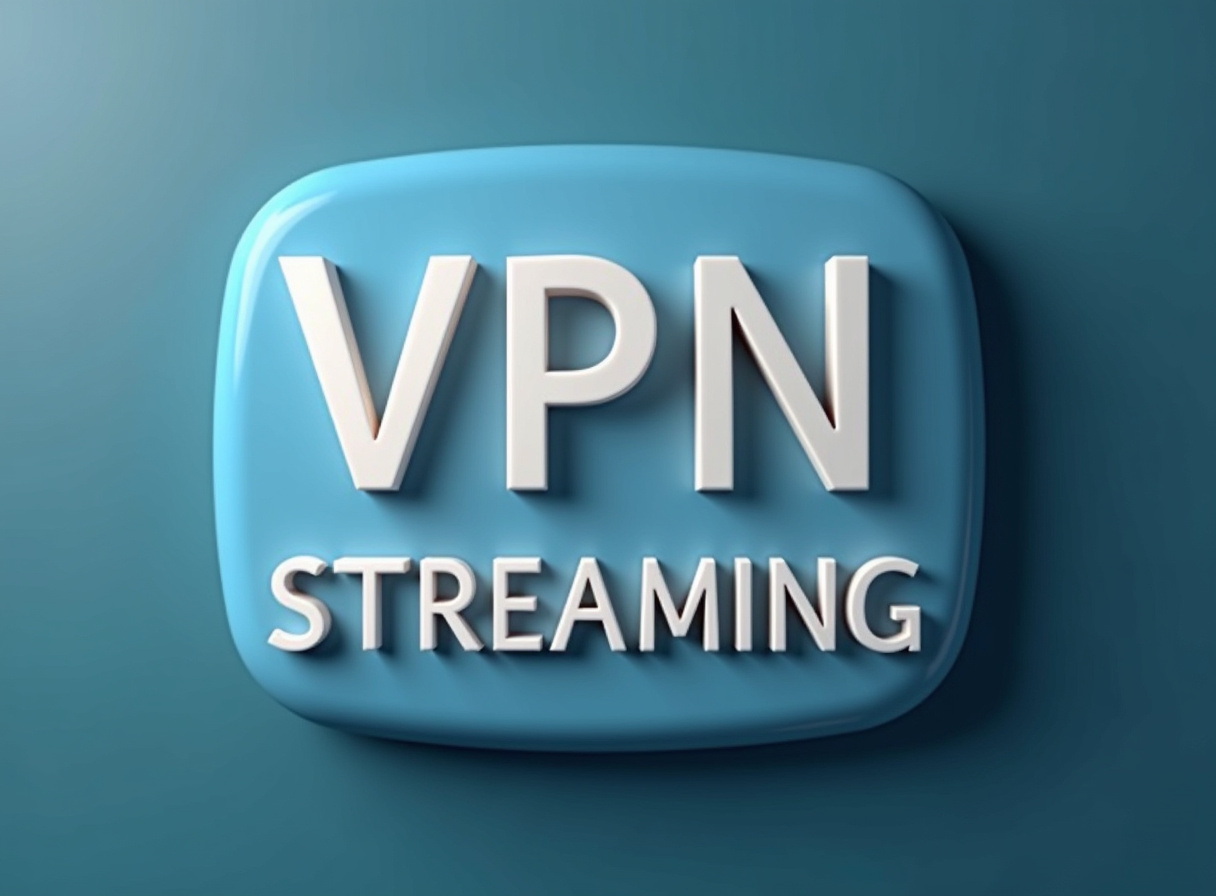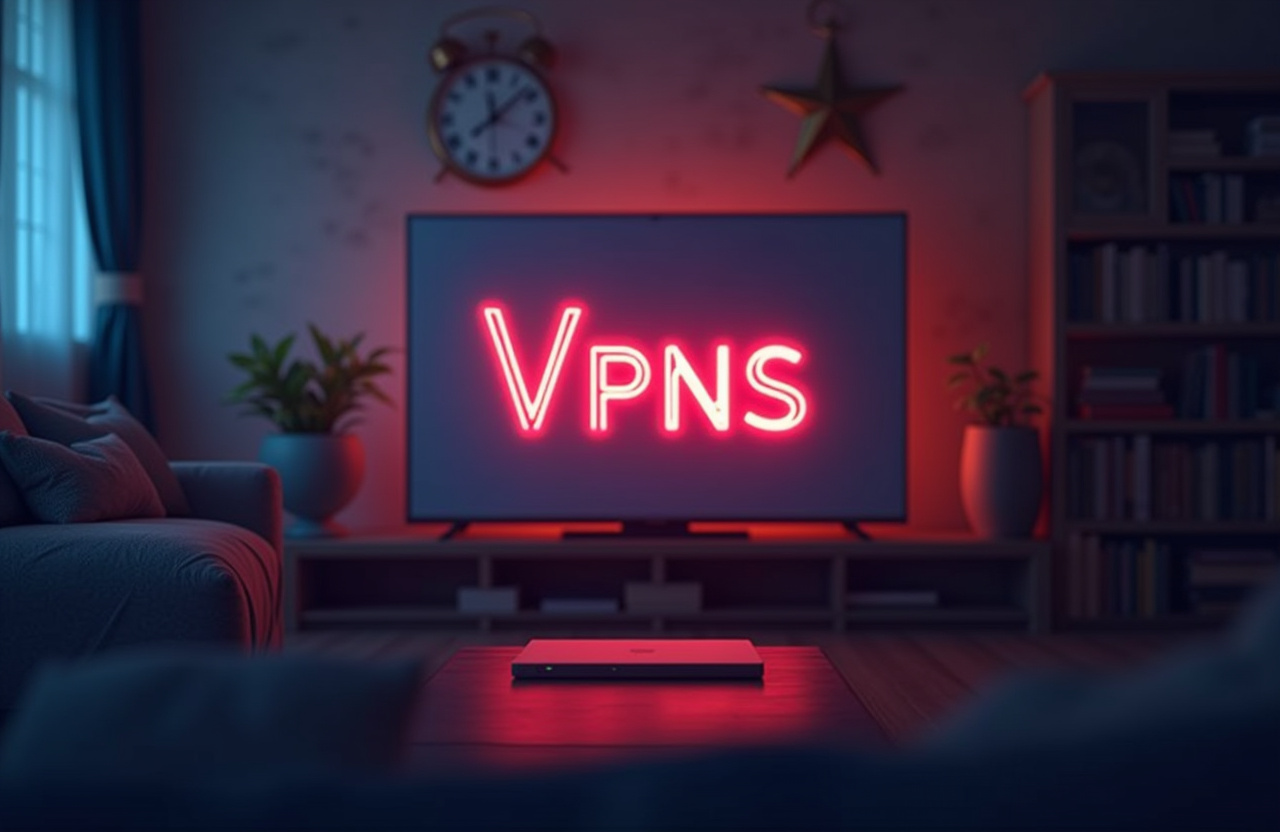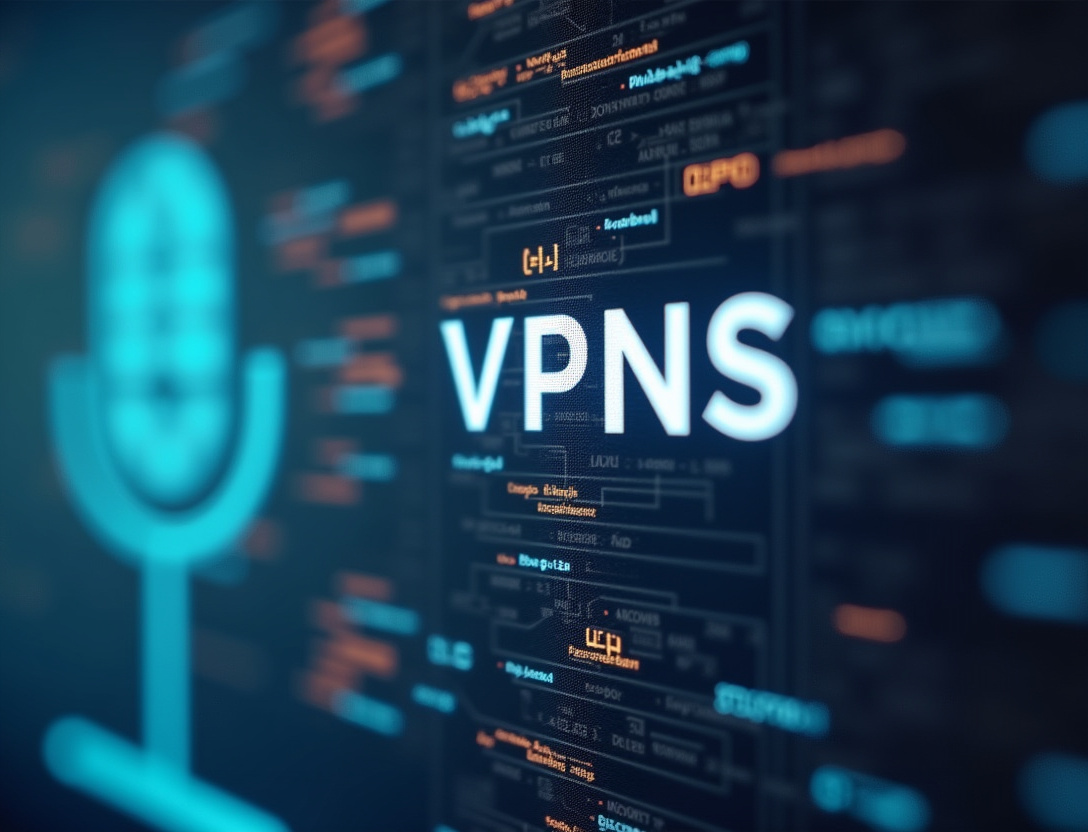Choosing the Best VPN for Streaming in 2025

Table of Contents
a significant monthly fee. While it's tempting to opt for the cheapest option, it's important to remember that you often get what you pay for. Free VPNs, in particular, should be approached with caution.
They often come with limitations, such as bandwidth caps, limited server locations, and intrusive advertising. Some free VPNs have even been known to collect and sell user data. While some reputable VPN providers offer free versions of their services, these are typically limited in terms of features and performance.
A paid VPN subscription is generally a better investment for serious streamers who value speed, security, and reliability. The method of payment also has an effect. Paying via cryptocurrencies will usually further protect your anonymity.
Evaluating the user experience provided by each VPN is also crucial. A VPN app that is intuitive and easy to use will make the streaming experience smoother and more enjoyable. Look for VPNs that offer user-friendly interfaces, clear instructions, and helpful customer support.
Finally, consider the VPN's compatibility with your streaming devices. Ensure that the VPN offers apps for all of your devices, including desktops, laptops, smartphones, tablets, and smart TVs. Some VPNs also offer browser extensions for added convenience.
By carefully comparing the key features and performance of different VPNs, you can make an informed decision and choose the service that best meets your streaming needs. Remember to prioritize speed, security, privacy, and compatibility to ensure a seamless and enjoyable streaming experience. The search for the 'best VPN 2025' is not a one-size-fits-all endeavor.
A careful analysis based on the relative importance of the above-mentioned factors is essential. User reviews can sometimes be misleading, so rely on trustworthy sources that conduct thorough testing of VPN services to reach the most appropriate conclusion. A truly 'seamless VPN' operation is one where the end user can engage in streaming activity without noticing the existence of a VPN at all.
This entails fast connections, no buffering, and easy switching between geographic locations. The ideal VPN should fade into the background, allowing you to fully enjoy the content without technical distractions. Some VPN services have also begun incorporating features targeted specifically at media consumption, for example, integration with media playback software, or browser extensions that automatically switch server locations based on the streaming service being used.
These additional features enhance the overall user experience and make the VPN even more valuable for streaming enthusiasts. The sheer volume of options in the VPN market can make choosing the correct service an intimidating task. However, by employing a systematic approach to evaluation, focusing on the features that are most essential for streaming, and staying abreast of the newest performance metrics, you can confidently make a selection tailored to your specific requirements.
Once you've narrowed down your choices to a few promising VPNs, it's time to put them to the test. Many VPN providers offer free trials or money-back guarantees, allowing you to try out their service risk-free. Take advantage of these opportunities to evaluate the VPN's performance in real-world scenarios.
Start by testing its speed and stability. Connect to servers in different locations and try streaming high-definition video content. Pay attention to buffering, lag, and any other performance issues.
A reliable VPN should be able to maintain a consistently fast and stable connection, even when streaming content from servers located far away. Next, test the VPN's ability to unblock content from different 'streaming services'. Try accessing content that is not available in your region and see if the VPN is able to bypass the geo-restrictions.
Some VPNs are more effective at unblocking content from certain platforms than others. Make sure the VPN you choose is compatible with the streaming services you use most often. Also, evaluate the UI of the VPN's native app.
Is it easy to navigate? Can you quickly find and connect to servers? Can you switch between regions freely without a frustrating amount of disconnect time?
Next, assess the VPN's kill switch. Disconnect from the VPN server – does the kill switch activate promptly and effectively cut off internet access to prevent IP leaking? Are there any advanced configuration settings which allow fine-grained control of your connection and the routing of traffic?
Evaluate the customer support as well. Contact their support team with a question or issue and see how responsive and helpful they are. A reputable VPN provider should offer prompt and informative customer support.
Don't simply take the VPN provider's word for it. Do your own research and read independent reviews from reputable sources. Look for reviews that are based on actual testing and that provide detailed information about the VPN's performance, security, and privacy.
Also, pay attention to user reviews, but be aware that these can sometimes be biased. Compare the VPN's pricing plans and see which one offers the best value for your needs. Consider the length of the subscription term, the number of devices you can connect simultaneously, and any additional features that are included.
The more research you do ahead of time, the more confident you will be that the VPN will fulfill your needs. Also, remember that streaming is not the only online activity you'll likely undertake. Some VPNs are better suited for torrenting or certain kinds of gaming, while others excel in regions prone to censorship.
The specific use case, combined with the key factor of streaming, will determine the importance of these factors. Do not neglect to consider the resources the VPN consumes (both the app, and as relevant, any background processes running). On less powerful computers, the resources can cause lag and negatively affect the UI of either the streaming client or the VPN's controls.
If you have multiple streaming devices, the number of simultaneous device connections which are supported is important. Many cheaper VPNs only support a handful of devices, requiring you to log out of one device before using another. If you have a large household all wanting to stream content at the same time, the device limit is important.
Remember to prioritize a 'seamless VPN' experience when testing. The goal is to find a VPN that allows you to stream your favorite content without any noticeable performance degradation or interruptions. Beyond the core features of speed, security, and server network, several additional factors can significantly enhance your streaming experience with a VPN.
One critical aspect is DNS leak protection. DNS, or Domain Name System, translates domain names (like google.com) into IP addresses that computers can understand. Without proper DNS leak protection, your DNS requests might be routed through your ISP's servers, even when you're using a VPN, potentially revealing your true location and online activity.
Ensure that your chosen VPN offers robust DNS leak protection to prevent this from happening. Another important feature to look for is split tunneling. Split tunneling allows you to choose which apps or websites are routed through the VPN tunnel and which ones use your regular internet connection.
This can be useful for streaming, as you can route your streaming traffic through the VPN while allowing other apps to use your regular connection for faster speeds. For example, you might want to use split tunneling to exclude your online banking app from the VPN connection, as some banks block access from VPN IP addresses. Obfuscation technology is another valuable asset, particularly if you live in a region with strict internet censorship or if you're trying to bypass VPN blocks imposed by streaming services.
Obfuscation disguises your VPN traffic as regular internet traffic, making it more difficult for ISPs or streaming services to detect that you're using a VPN. This can help you bypass VPN blocks and access content that would otherwise be unavailable. Some VPNs also offer specialized servers that are optimized for streaming.
These servers are typically located in countries where popular streaming services are available and are designed to deliver fast and stable connections. Look for VPNs that offer dedicated streaming servers for an enhanced streaming experience. Consider the VPN's logging policies.
A reputable VPN should have a strict no-logs policy, meaning they do not track or store any information about your online activity, including your browsing history, IP address, or connection timestamps. Review the VPN's privacy policy carefully to ensure that it aligns with your privacy expectations. Consider the ethical considerations as well.
Supporting VPN providers with a strong commitment to transparency and human rights is crucial. Some VPN providers actively support digital rights organizations and advocate for internet freedom. Choosing a VPN provider with a strong ethical stance can help you support a more open and secure internet for everyone.
Think about the impact of your VPN usage on the environment. Some VPN providers invest in renewable energy and other sustainable practices to reduce their carbon footprint. Choosing an environmentally conscious VPN provider can help you minimize your environmental impact.
Many VPNs are also starting to include built-in ad blockers that can further improve the viewing experience overall. Look at the advanced configuration options, especially if you are a more technical user. Features such as custom DNS servers, protocol selection and port forwarding can be very useful for advanced use cases.
Furthermore, find out which VPN protocols are supported. OpenVPN and IKEv2 are generally very solid choices, and support most modern devices. The modern WireGuard protocol is gaining ground as well.
Remember that you have to keep your security in mind at all times, though – any speed gains associated with reducing encryption levels are generally not worth the risk. By considering these advanced features and ethical considerations, you can choose a VPN that not only enhances your streaming experience but also aligns with your values and supports a more open and secure internet. Finding the 'best VPN 2025' is not just about unlocking content - it's about making an ethical decision that prioritizes both privacy and responsible technology use.
Optimizing your VPN settings can significantly improve your streaming experience and ensure a seamless and uninterrupted viewing session. Start by selecting the right server location. Choose a server that is located in a country where the content you want to access is available.
However, also consider the proximity of the server to your actual location. A server that is closer to you will typically provide faster speeds and lower latency. Experiment with different server locations to find the one that works best for you.
Many VPN apps allow you to save your favorite server locations for easy access. Choose the appropriate VPN protocol. Different VPN protocols offer varying levels of speed and security.
OpenVPN is a widely used and highly secure protocol, but it can sometimes be slower than other options. IKEv2/IPsec is another secure protocol that often provides faster speeds than OpenVPN. WireGuard is a newer protocol that is designed for speed and efficiency, making it a good choice for streaming.
Experiment with different protocols to see which one performs best for you. Configure your VPN app to automatically connect to the VPN server when your device starts up. This will ensure that your internet traffic is always protected by the VPN tunnel.
Enable the kill switch feature to prevent your data from being exposed if the VPN connection drops unexpectedly. Use split tunneling to route only your streaming traffic through the VPN tunnel. This can improve your overall internet speed and reduce the load on the VPN server.
Disable IPv6 to prevent IPv6 leaks. IPv6 is the latest version of the Internet Protocol, but not all VPNs fully support it. Disabling IPv6 can prevent your real IP address from being exposed.
Configure your device's DNS settings to use the VPN's DNS servers. This will prevent DNS leaks and ensure that your DNS requests are routed through the VPN tunnel. Clear your browser's cache and cookies regularly to prevent websites from tracking your online activity.
Use a strong and unique password for your VPN account. Enable two-factor authentication for added security. Keep your VPN app updated to the latest version to ensure that you have the latest security patches and bug fixes.
If you're experiencing slow speeds or buffering issues, try restarting your VPN app or connecting to a different server. If you're still having problems, contact your VPN provider's customer support for assistance. Consider upgrading your internet connection.
A faster internet connection will improve your streaming experience, regardless of whether you're using a VPN. Test your internet speed regularly to ensure that you're getting the speeds you're paying for. Use a wired connection whenever possible.
A wired connection is typically more stable and faster than a wireless connection. Close any unnecessary apps or programs that may be consuming bandwidth. By optimizing your VPN settings and following these tips, you can ensure a smooth and uninterrupted streaming experience.
Remember to prioritize security and privacy while optimizing for performance. Finding the right balance between speed and security is key to enjoying a seamless streaming experience with a VPN. Check the settings on your router asAs the streaming landscape continues to evolve, so too will the VPN technology that supports it.
In the future, we can expect to see even faster VPN speeds, more sophisticated security features, and more seamless integration with streaming devices. One emerging trend is the use of AI and machine learning to optimize VPN performance. AI-powered VPNs can automatically select the best server location for your needs, based on factors such as your location, the content you're trying to access, and the current network conditions.
AI can also be used to detect and prevent VPN blocks imposed by streaming services. Another trend to watch is the development of quantum-resistant encryption. As quantum computers become more powerful, they will be able to break existing encryption algorithms.
Quantum-resistant encryption algorithms are designed to withstand attacks from quantum computers, ensuring the long-term security of your data. The rise of 5G technology will also have a significant impact on VPNs. 5G offers much faster speeds and lower latency than previous generations of wireless technology.
This will enable VPNs to deliver even faster and more reliable streaming experiences. As more and more devices become connected to the internet, the need for VPNs will only continue to grow. VPNs will play an increasingly important role in protecting our privacy and security online.
We can also expect to see more VPN providers offering specialized services for specific streaming platforms. These services will be optimized for unblocking content and delivering the best possible streaming experience. VPN technology may also be embedded directly into streaming devices, making it even easier to protect your privacy and access content from around the world.
It's important to stay informed about the latest developments in VPN technology so you can choose the best VPN for your needs. Read reviews from reputable sources and stay up-to-date on the latest security threats and privacy risks. As streaming services continue to crack down on VPN usage, it's important to choose a VPN that is constantly evolving and adapting to the latest challenges.
Look for VPN providers that are committed to innovation and that have a proven track record of bypassing VPN blocks. The 'VPN for streaming' landscape is constantly changing, so it's important to do your research and choose a VPN that is well-equipped to handle the challenges of the future. The key factor to survival in the VPN landscape is a commitment to delivering a 'seamless VPN' experience alongside a robust suite of security features.
As streaming services get better at detecting and blocking VPN usage, vendors must continuously find inventive solutions. Remember that in the future, your privacy will depend more and more on the choices you make today regarding your digital security. The 'best VPN 2025' might look very different from the 'best VPN 2025'.
The important takeaway is to carefully examine the VPN's features and adapt to the changing technology requirements needed for privacy and speed. Keeping up with the changing capabilities of 'streaming services' and the VPN is a cat-and-mouse chase.
Stay Updated
Get the latest VPN news, tips, and exclusive deals to your inbox.




